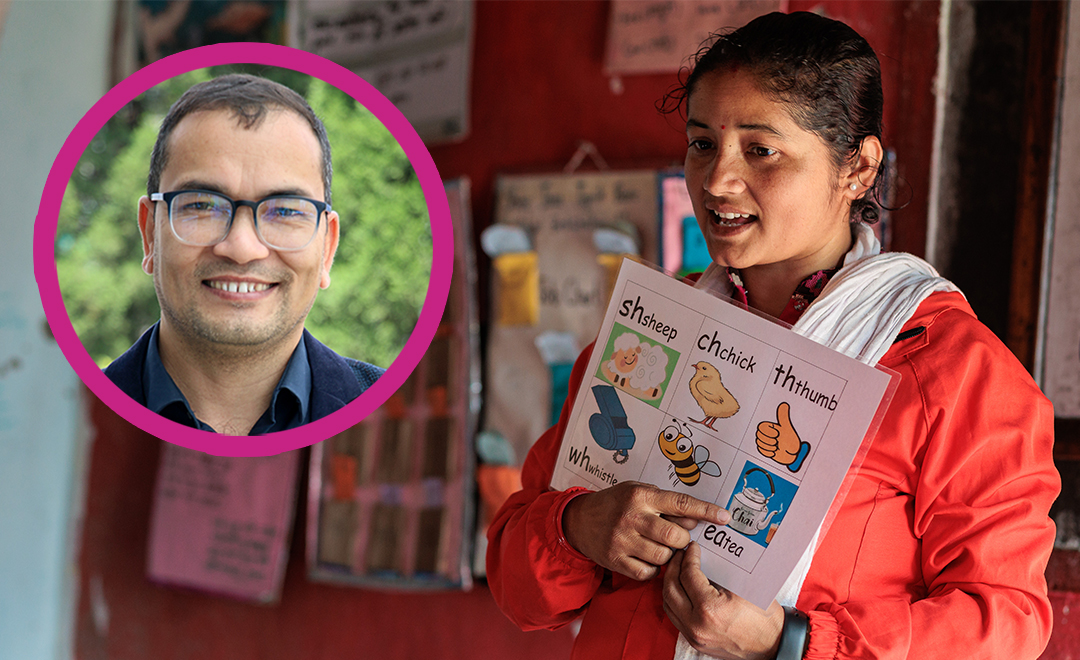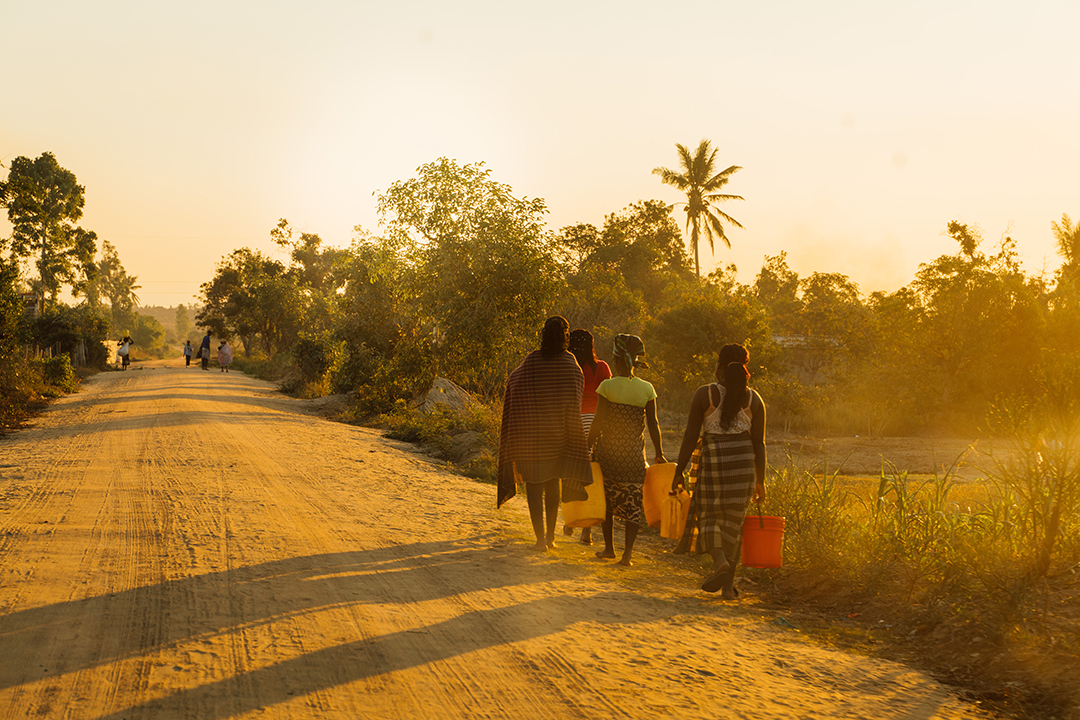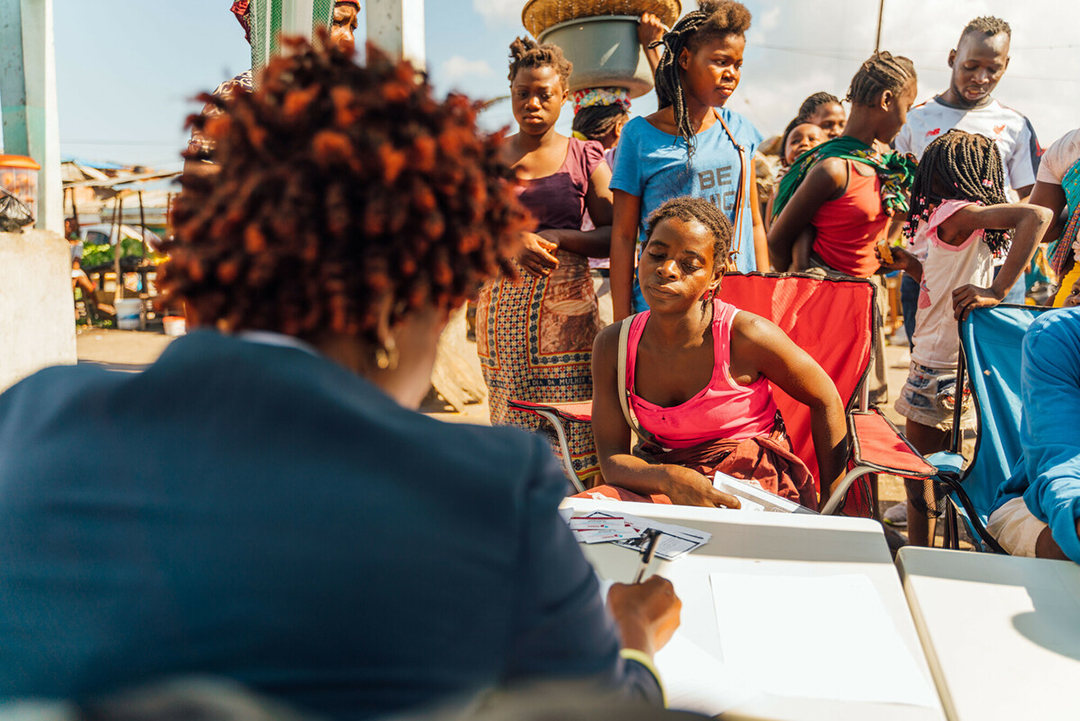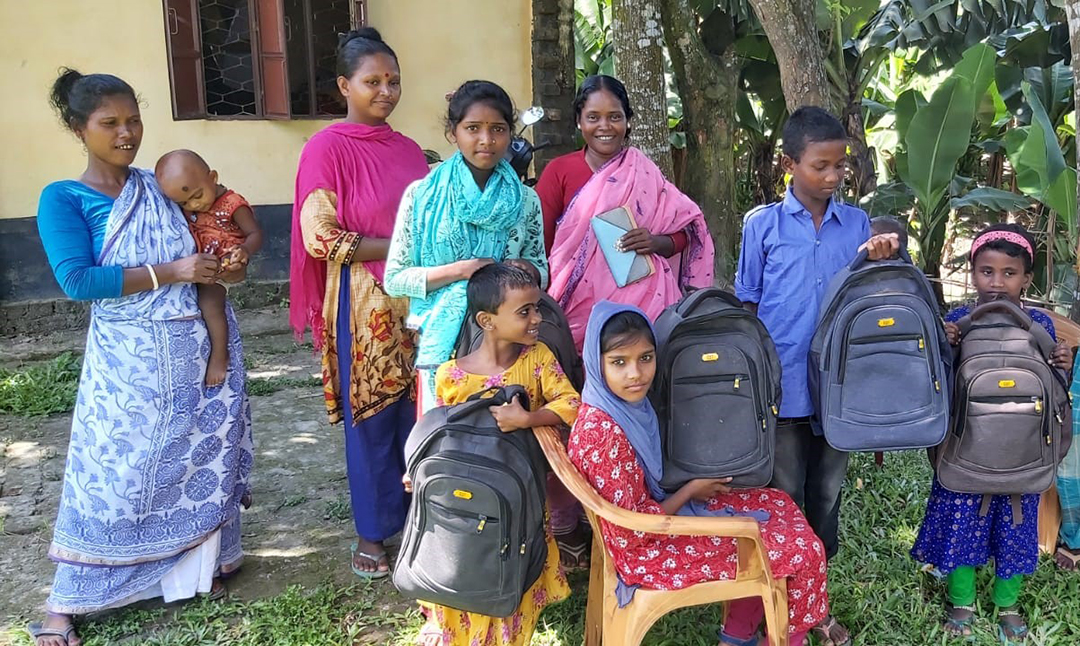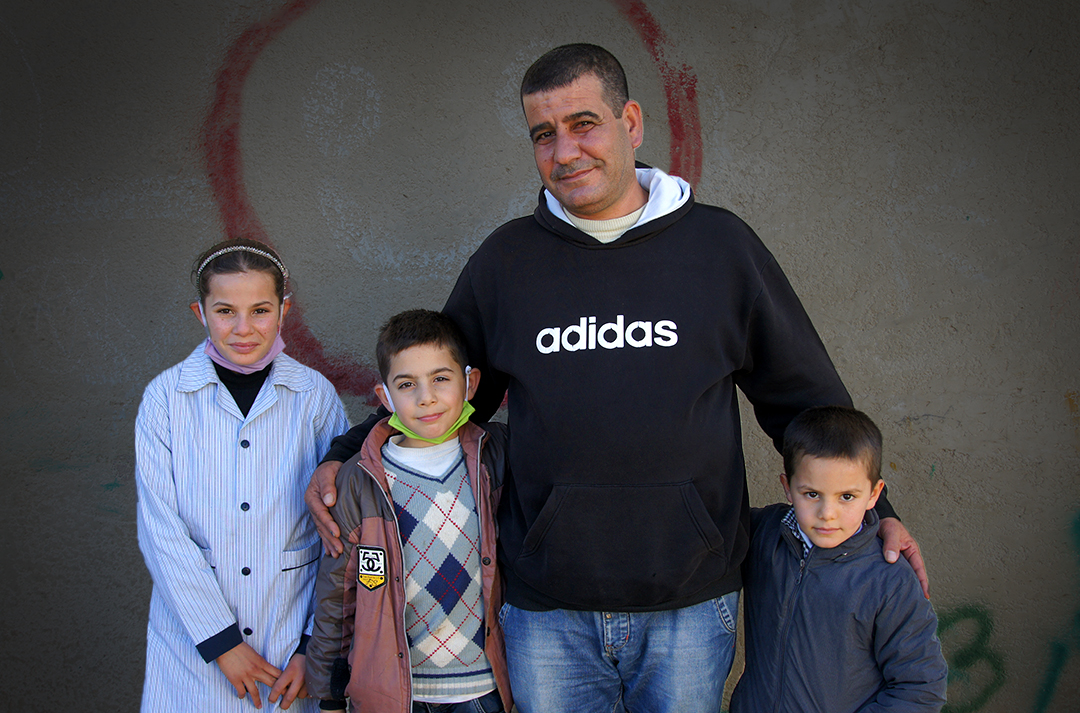Seeking abundant life:
Finding hope after trauma
Almost everyone in Mozambique has experienced trauma at some point in their lives. And while we might not be able to stop it happening, your support of BMS World Mission is helping combat the effects – and helping people live lives to the full.
Most people Lucy knows have experienced trauma at some point in their lives. Maybe it was from one of the many cyclones that have struck Lucy’s native Mozambique in the last few years. Perhaps it was because of the Covid-19 pandemic. It could have been any number of things that come out of a life lived in poverty. Either way, Mozambique is no stranger to trauma. And Lucy wants to do something about that.
But before we’re hear Lucy’s story, we need to introduce Liz. BMS World Mission worker Liz Vilela works with the BMS-supported PEPE preschool programme, helping give vulnerable children the educational foundation they need. But during the Covid-19 pandemic, Liz started reading more deeply about trauma and how it affects us – and she found that it was incredibly relevant for a lot of the children she worked with.
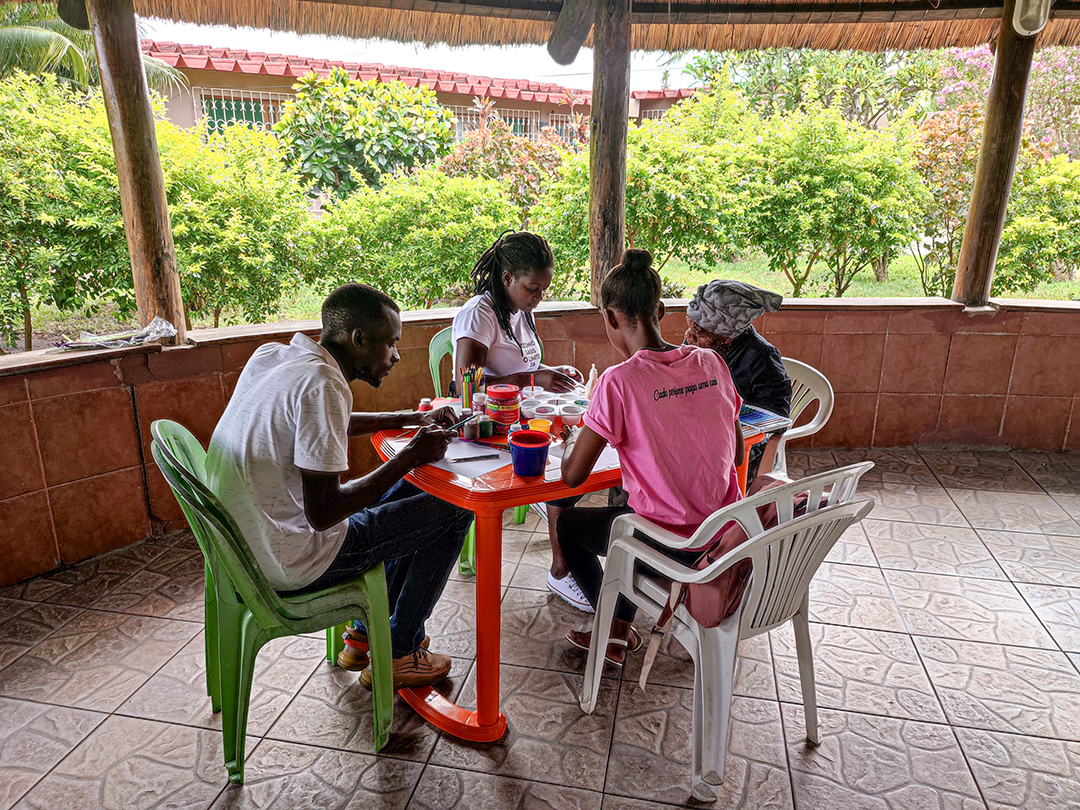
Liz is a qualified play therapist, and she knows well from her work just how serious an effect trauma can have. “By age three, a brain has reached 80 per cent of its adult volume,” says Liz. “So when professionals say nought to three years is the most important time in a child’s life, that’s why, because that’s the time when their brain grows the most.”
And the effects of trauma can be displayed in many different ways depending on the child: for some, they’ll get angry quickly and misbehave. For others, they’ll struggle with socialising and even talking. In a country that has experienced so many challenges over the years, Liz knew that by educating people about trauma and its effects on children, she could make a real difference.
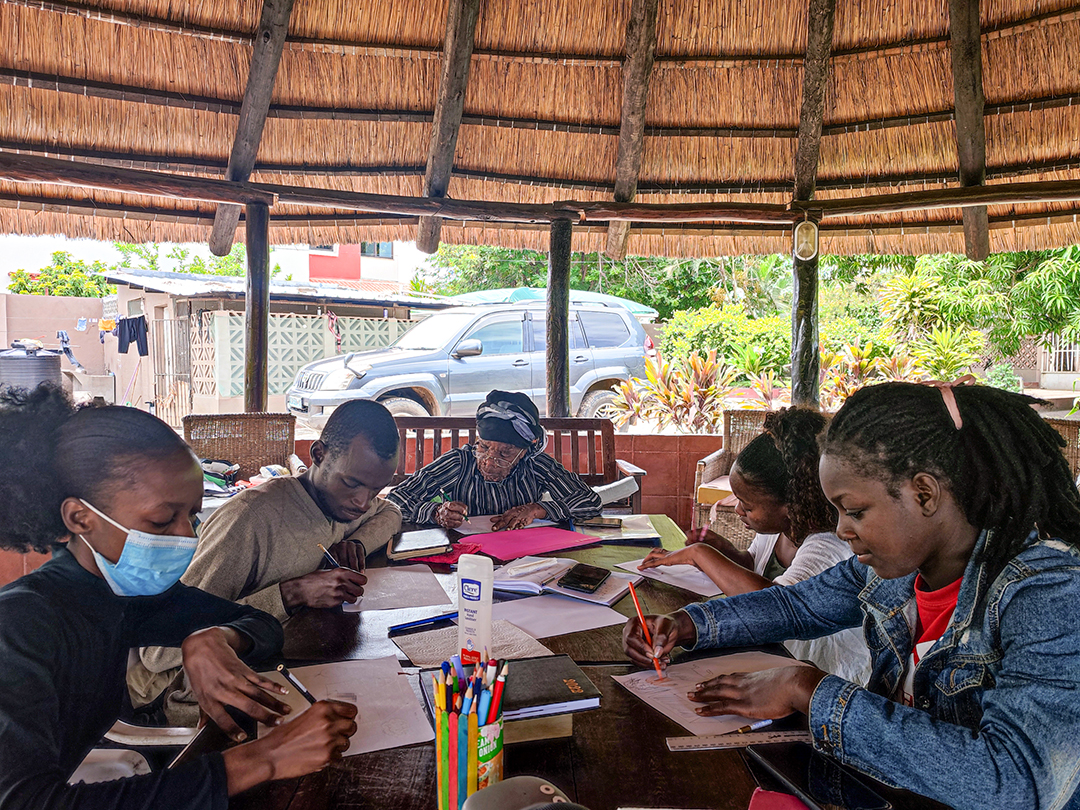
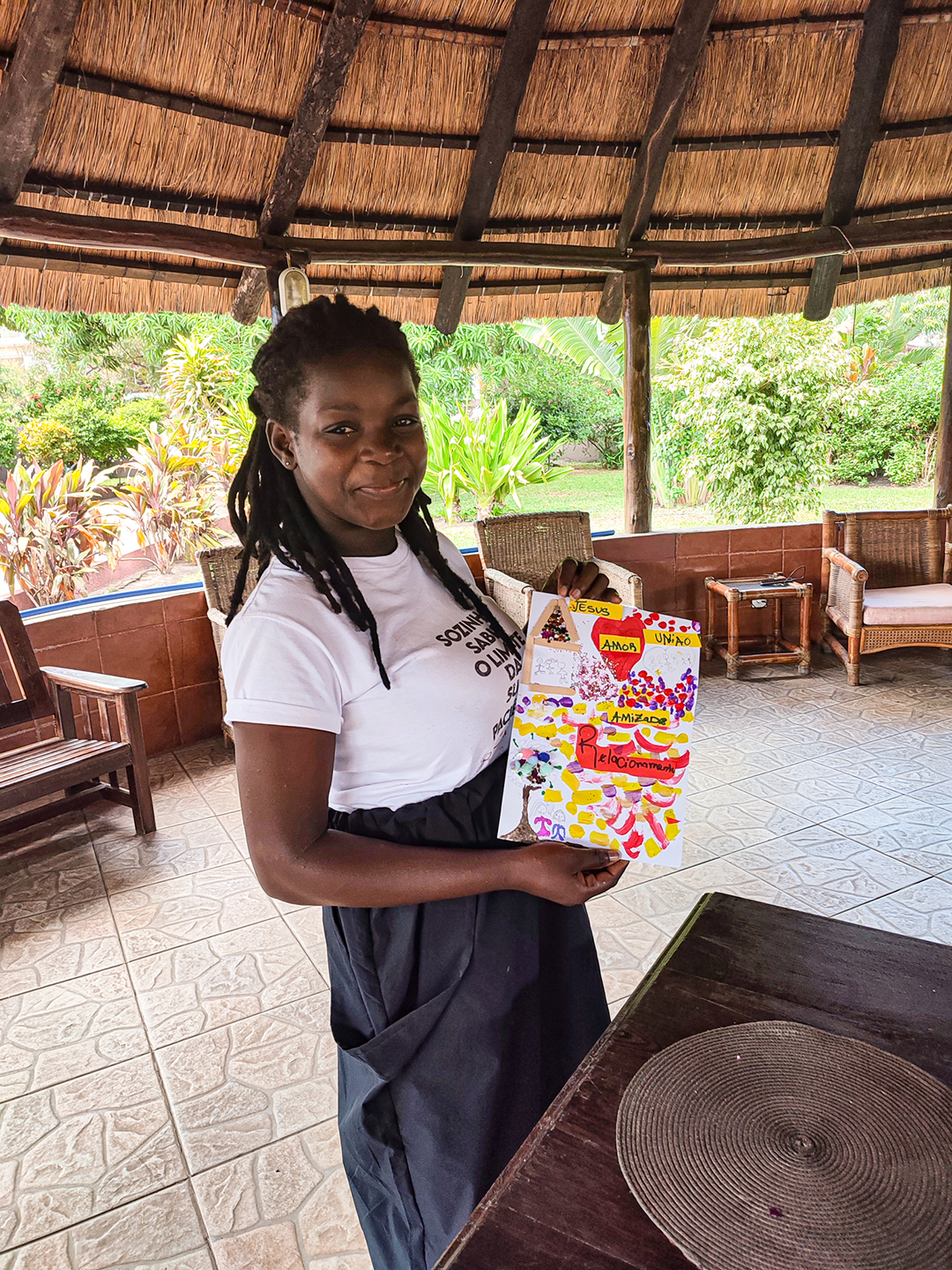
Liz decided to start a trauma-informed training course. She invited the PEPE National Co-ordinator, as well as others from local churches who worked with children, as it spoke into the work they were already doing. “If you have a trauma-informed lens on, you look at a child differently,” says Liz. “Rather than asking ‘Why are you doing this?’ You ask, ‘What have you been through?’” And while the group started by looking at how trauma affected children, members also began to see the effects of trauma in their own lives. From there, they were able to see how trauma had affected other people in their communities – which is where Lucy comes back into our story.
Lucy heard about the course through a friend of Liz’s who she worked with. While Lucy was doing the trauma-informed training, her neighbour spoke to her about the trouble she was having with her teenage son. He was acting out, never at home, not doing what he was told, and his mother didn’t know what to do. From the training, Lucy knew that just dealing with the boy’s behaviour and not what was causing it wouldn’t solve anything in the long run. So she tried to speak to him about it, and when he struggled to open up, got him to write it down. He wrote a letter to Lucy and shared that he didn’t like it when his parents fought, and he didn’t feel that home was a safe space, which was why he didn’t want to be there. When Lucy spoke to her neighbour about what she’d read, she was surprised at her son’s feelings – but it really helped her to understand his behaviour and how she could help him. “Through him just communicating how he was feeling, they were then able to help them build a better relationship,” says Liz.
While we should rejoice in Lucy’s success, Liz knows that there’s still a lot of work to be done. “People say that people in Mozambique are very resilient… but people who live in poverty, if they go through a situation, they can’t just sit down and cry about it, they have to just keep going,” says Liz. “So they are resilient because they have to be, but at the same time, it’s not necessarily out of choice, it’s out of a lack of choice.”
Which is why the trauma training groups are built to grow. In the last session of the course, everyone is asked to bring someone along to see if they would be interested in doing the training. Two cohorts have done the training already, with a third beginning very soon, and Liz prays more will follow. The hope is that the training will open more hearts to kindness and compassion and lead more people to live the abundant life that Jesus intended for them. And through the generosity of BMS supporters, Liz knows that this is more than possible. Thank you for all you’ve done to support Liz and her family serving in Mozambique, enabling children and their parents to live lives that are shaped by more than the hardest things they’ve lived through.

Words by Laura Durrant.

